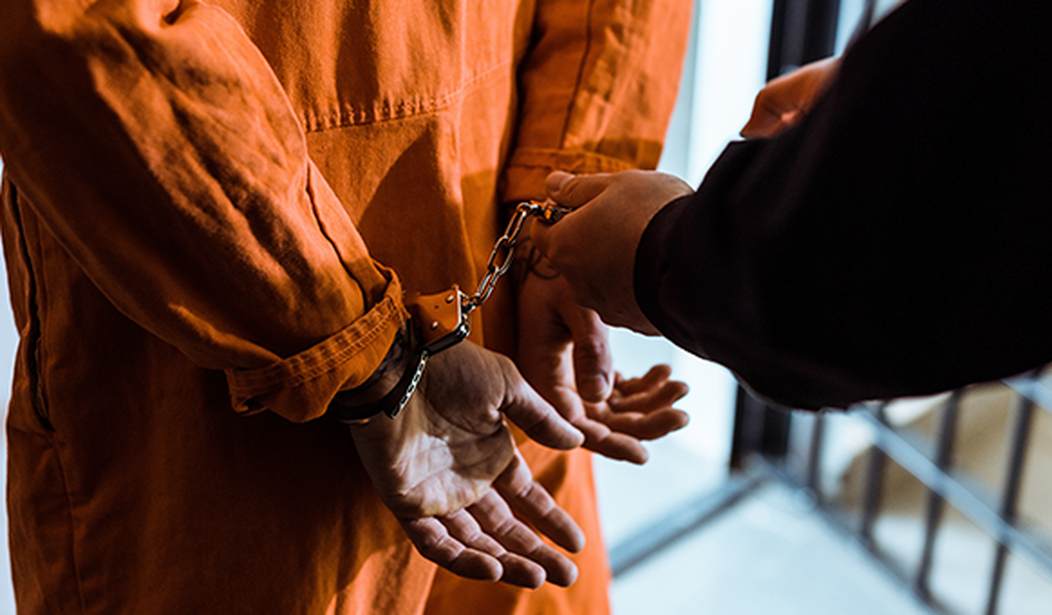Prison officials and law enforcement agencies are putting tens of thousands of inmates on lockdown and releasing thousands more across the country in a bid to stem the spread of the novel coronavirus in penal institutions, even as there have been a growing number of disturbances behind bars in the past several days.
On Friday, about 50 inmates at a prison in Kansas destroyed “everything that could be broken,” according to one inmate, who says the riot began over a lack of testing and masks for inmates, as well as an inability to shower. Randy Bowman, the executive director of public affairs for the Kansas Department of Corrections, says the riot was confined to one cell block and lasted about 13 hours.
Inmates got into some staff offices and threw around papers and other items and broke into containers to reach fire extinguishers, which were discharged, Bowman said, describing it as “lots of property damage.”
The restricted movement imposed after the COVID-19 cases did not mean that prisoners were confined to their cells, but they took meals in their housing units and there were changes to recreation procedures to prevent the mixing of large groups, Bowman said.
A larger disturbance was reported at a prison in Washington State on Thursday, and inmates at a federal prison in Louisiana were tear-gassed after a riot nearly broke out when inmates were moved from quarantine back into the general population on Wednesday evening.
Meanwhile, jails and prisons continue to release inmates under increasingly relaxed rules for early release and bail for suspects who haven’t yet gone to trial. In California, the state’s Judicial Council released new guidelines that allows those arrested on most misdemeanor and some felony charges to be released without posting any bail whatsoever. That move is expected to free thousands of suspects across the state, with nearly 300 inmates set for release in Stanislaus County alone.
On Monday between 150 and 350 inmates, or as much as a quarter of the jail population in Stanislaus County, will be released from custody as a result of a statewide emergency bail schedule intended to slow or prevent the spread of COVID-19 among the incarcerated population.
The Judicial Council of California on April 6 established the temporary bail schedule that reduced to $0 the bail for most misdemeanor and some low-level felony offenses. It applies to accused inmates whose cases have not been adjudicated and anyone arrested on the applicable crimes while the emergency rule is in place.
“I am very concerned about many of the crimes that would permit zero bail: elder abuse, brandishing a weapon, auto theft, escape … the list goes on,” Stanislaus County District Attorney Birgit Fladager said in an email. “Even so called ‘lesser offenses’ when committed over and over again by the same person pose significant threats to public safety and quality of life.”
Other crimes with $0 bail include possession of heroin or cocaine for sale and possession of a firearm by a gang member, said Stanislaus County Sheriff Jeff Dirkse. He said nearly all misdemeanors qualify, with the exception of driving under the influence and domestic violence.
In Cleveland, nearly 900 inmates have been released from the Cuyahoga County Jail, and in Philadelphia courts have ordered the release of several hundred individuals currently behind bars.
As millions of Americans wonder when life will start to return to normal, we should also be wondering what happens to our criminal justice system in the meantime. Courts are operating on emergency schedules in many jurisdictions, with trials and most court business on hold, and many police departments have been told to not make arrests for many low-level crimes as well. We’ve seen plenty of headlines about falling crime rates in cities across the United States, but at this point it’s unclear whether we’re seeing fewer crimes or simply fewer reports and fewer arrests.
With some cities beginning to cancel Independence Day events and other festivals that are months away, it’s unlikely that the criminal justice system is going to return to normal any time soon. Coronavirus deaths may peak in the United States this week, but we may just be beginning to feel the impact on our crime rates. Americans aren’t buying firearms in record numbers because they want to shoot the coronavirus. They’re picking up guns and ammunition because they’re worried about what the prolonged shutdowns might mean to their personal safety and the security of those they love.








Join the conversation as a VIP Member